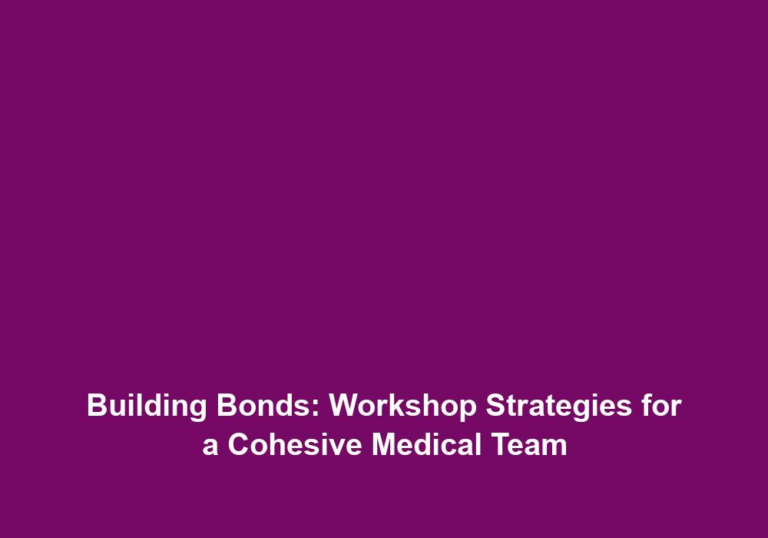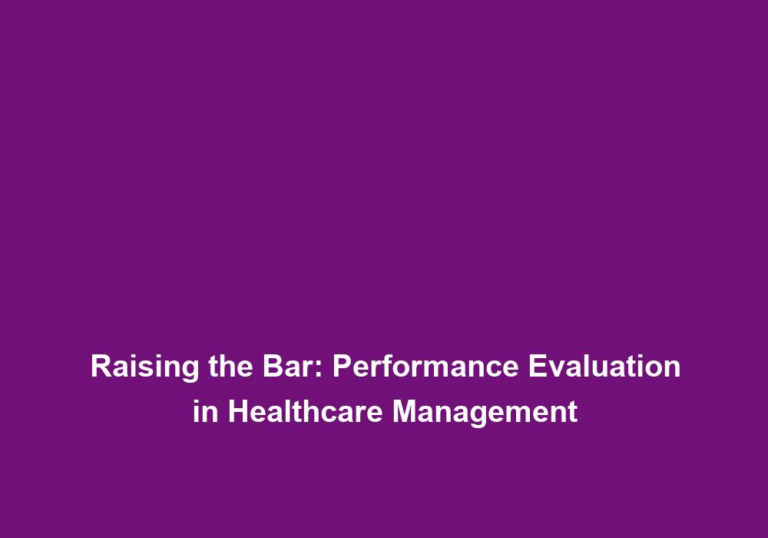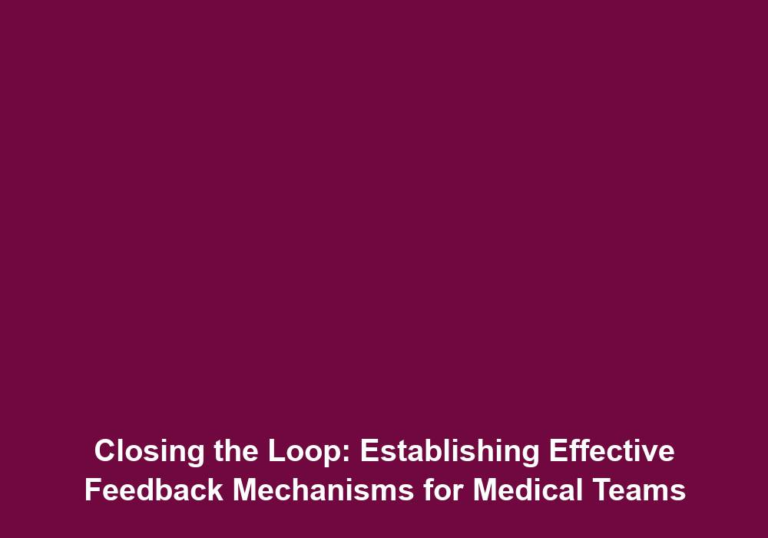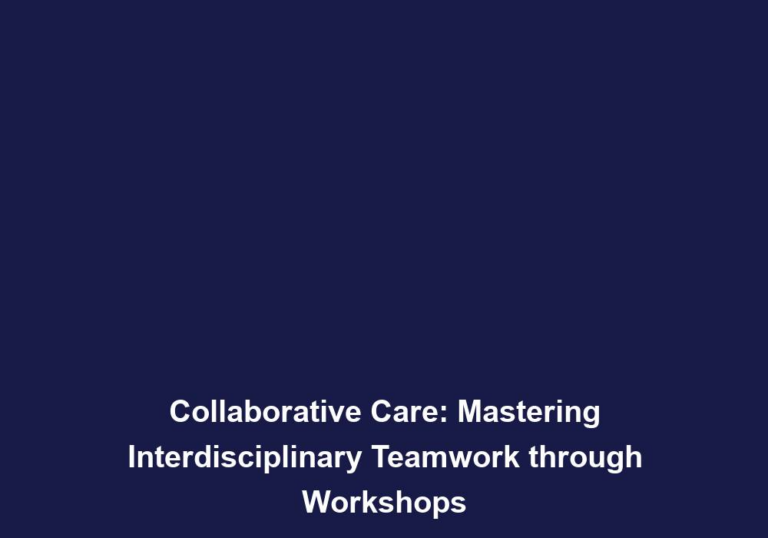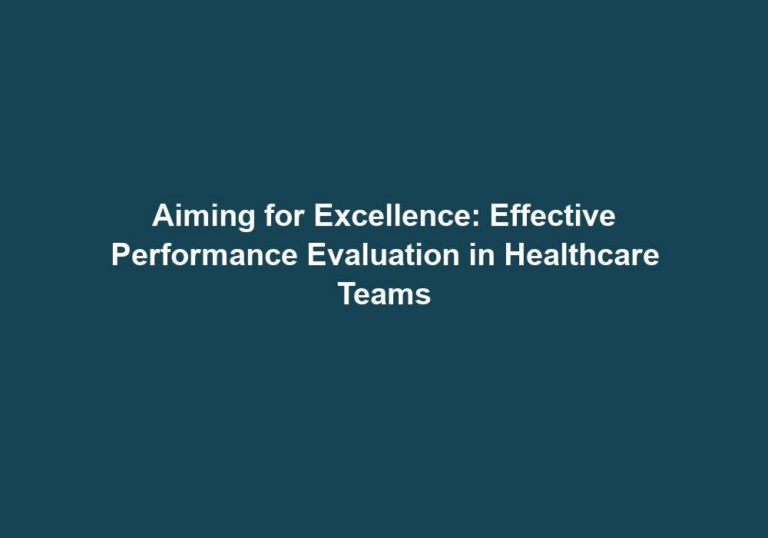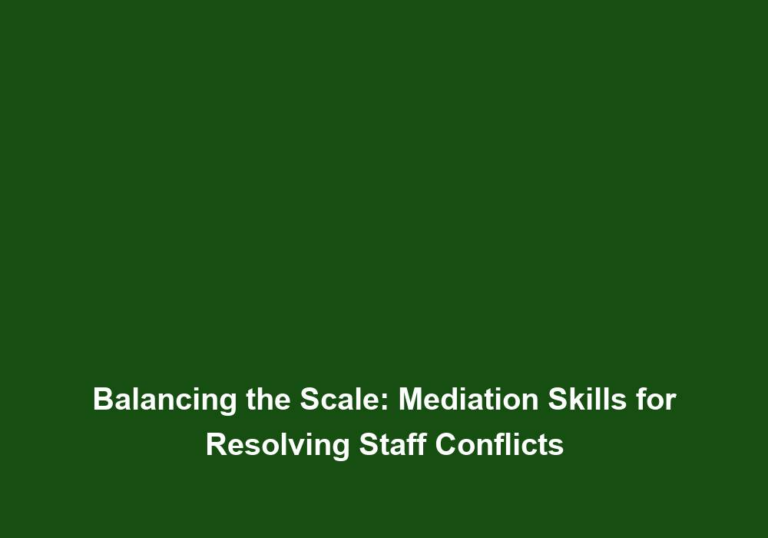Strengthening the Healthcare Team: Team Building Workshops for Staff
In the fast-paced and high-pressure environment of the healthcare industry, it is crucial to have a strong and cohesive team. Effective teamwork not only improves patient outcomes but also enhances staff satisfaction and productivity. One powerful tool that healthcare organizations can utilize to strengthen their teams is team building workshops.
The Importance of Team Building in Healthcare
Healthcare professionals work in a multidisciplinary setting, where collaboration and effective communication are vital. Team building workshops provide an opportunity for staff members to develop trust, enhance their interpersonal skills, and foster a sense of camaraderie among team members. These activities are designed to break down barriers, encourage cooperation, and create a supportive and positive work environment.
Building Trust and Enhancing Interpersonal Skills
Team building workshops offer a platform for healthcare professionals to build trust and enhance their interpersonal skills. Through engaging activities such as trust falls, blindfolded exercises, and team challenges, team members can learn to rely on each other and work collaboratively towards common goals. These activities promote open and transparent communication, allowing team members to express their ideas, concerns, and expectations more effectively. By developing trust and improving interpersonal skills, healthcare teams can establish a foundation of effective collaboration and cooperation.
Improving Communication and Collaboration
Effective communication is the cornerstone of any successful healthcare team. Team building workshops provide exercises and activities that promote open and transparent communication, enabling team members to express their ideas, concerns, and expectations more effectively. These workshops can include communication and active listening exercises where participants practice paraphrasing, summarizing, and clarifying information to ensure effective and accurate communication. By improving communication skills, healthcare professionals can better understand and support each other, leading to reduced conflicts and enhanced patient care.
Creating a Supportive and Positive Work Environment
Team building workshops are designed to create a supportive and positive work environment. Through tailored activities that simulate challenging patient interactions or emergency situations, healthcare professionals can develop their problem-solving skills. These workshops encourage critical thinking, collaboration, and adaptability, enabling staff members to efficiently solve problems and overcome obstacles. By fostering a supportive and positive work environment, team building workshops contribute to increased employee morale, job satisfaction, and reduced turnover rates.
Benefits of Team Building Workshops
-
Improved Communication: Effective communication is the cornerstone of any successful healthcare team. Team building workshops offer exercises and activities that promote open and transparent communication, enabling team members to express their ideas, concerns, and expectations more effectively. This leads to better collaboration, reduced conflicts, and enhanced patient care.
-
Enhanced Problem-Solving Skills: In a healthcare setting, quick and efficient problem-solving is crucial. Team building workshops provide opportunities for staff members to develop their problem-solving skills through interactive exercises and simulations. These activities encourage participants to think critically, work together to find solutions, and adapt to challenging situations.
-
Increased Trust and Collaboration: Trust is essential for effective teamwork. Through team building workshops, trust can be fostered and strengthened among team members. Activities such as trust falls, team challenges, and problem-solving exercises create an environment of mutual support, where individuals can rely on one another and work collaboratively towards common goals.
-
Boosted Employee Morale: Healthcare professionals often face high levels of stress and burnout. Team building workshops provide a much-needed break from the daily routine, allowing staff members to relax, have fun, and recharge. Engaging in enjoyable and meaningful activities together can boost employee morale, increase job satisfaction, and reduce turnover rates.
-
Improved Leadership Skills: Team building workshops can also help develop leadership skills among healthcare professionals. These workshops often include activities that encourage individuals to take on leadership roles, make decisions, and guide their team towards success. By providing a safe and supportive environment for leadership development, team building workshops can nurture future leaders within the healthcare organization.
Designing Effective Team Building Workshops
When designing team building workshops for healthcare staff, it is essential to consider the unique characteristics and challenges of the industry. Here are some key elements to incorporate:
1. Tailored Activities
Choose activities that are relevant and relatable to the healthcare setting. For example, role-playing scenarios that simulate challenging patient interactions or emergency situations can help improve communication and decision-making skills. By tailoring activities to the specific challenges faced by healthcare professionals, team building workshops become more effective in addressing the needs of the team.
2. Collaboration and Problem-Solving Exercises
Include activities that require participants to work together to solve problems or overcome obstacles. This promotes teamwork, enhances critical thinking skills, and encourages effective collaboration. Collaborative problem-solving exercises can simulate real-life situations, allowing healthcare professionals to practice and refine their problem-solving abilities in a supportive environment.
3. Communication and Active Listening Exercises
Incorporate activities that focus on improving communication and active listening skills. These can include exercises where participants practice paraphrasing, summarizing, and clarifying information to ensure effective and accurate communication. By honing these skills, healthcare professionals can better understand and address the needs of their colleagues and patients.
4. Trust-Building Activities
Include trust-building activities to foster a supportive and cohesive team. This can involve trust falls, blindfolded exercises, or team challenges that require individuals to rely on each other. Trust-building activities create an environment where team members feel safe and supported, allowing them to collaborate more effectively and build stronger relationships.
5. Reflection and Feedback Sessions
Allocate time for reflection and feedback sessions after each activity. This allows participants to discuss their experiences, share insights, and provide constructive feedback. Reflection promotes self-awareness and helps participants apply their learnings to their daily work. Feedback sessions create an opportunity for individuals to express their thoughts and suggestions, fostering continuous improvement and growth within the team.
Conclusion
Team building workshops play a vital role in strengthening healthcare teams. By improving communication, enhancing problem-solving skills, fostering trust and collaboration, boosting employee morale, and developing leadership abilities, these workshops contribute to a more efficient and cohesive healthcare workforce. When designing team building workshops, it is crucial to tailor activities to the healthcare industry’s unique needs and challenges. By investing in team building, healthcare organizations can create a supportive and collaborative environment that benefits both staff members and patients alike.


